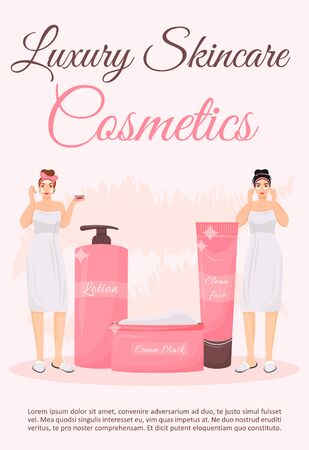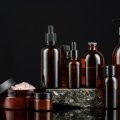1. Broad-Spectrum Protection: Why It Matters
When it comes to choosing a sunscreen, one of the most important things to look for is “broad-spectrum” protection. But what exactly does that mean? In simple terms, broad-spectrum sunscreens protect your skin from both UVA and UVB rays — two types of ultraviolet radiation that can seriously damage your skin.
Understanding UVA and UVB Rays
Not all sun rays are the same. Heres a quick breakdown:
| Type of Ray | What It Does | How Sunscreen Helps |
|---|---|---|
| UVA | Penetrates deep into the skin, causing premature aging and wrinkles. | A broad-spectrum sunscreen helps prevent long-term damage like fine lines and sunspots. |
| UVB | Main cause of sunburn and plays a key role in developing skin cancer. | Sunscreen with SPF protects against burning and reduces cancer risk. |
The Role of Dermatologist-Recommended Sunscreens
The top dermatologist-recommended sunscreens always offer broad-spectrum protection because its essential for maintaining healthy skin. Whether youre dealing with acne-prone skin, hyperpigmentation, or simply want to age gracefully, using a broad-spectrum sunscreen daily is a must.
Sunscreen Labels to Look For:
- “Broad-Spectrum”: Ensures protection from both UVA and UVB rays.
- “SPF 30 or higher”: Offers strong protection for everyday use.
- “Water-resistant”: Ideal if youre swimming or sweating.
Quick Tip:
If your sunscreen doesn’t say “broad-spectrum,” it might only block UVB rays — which means you’re still exposed to the damaging effects of UVA rays. Always double-check the label!
This is why every product featured in our “Top 20 Dermatologist-Recommended Sunscreens for Every Skin Concern” list includes this crucial feature — because protecting your skin isn’t just about avoiding burns; it’s about long-term health and beauty too.
2. Best Sunscreens for Sensitive Skin
If your skin easily reacts to products, finding a sunscreen that won’t cause irritation can be tricky. Luckily, many dermatologists recommend formulas specifically designed for sensitive skin—free from common irritants like fragrances, alcohol, and harsh chemicals.
What to Look For in a Sunscreen for Sensitive Skin
- Fragrance-Free: Fragrances are one of the most common causes of allergic reactions and irritation.
- Alcohol-Free: Alcohol can dry out and sting sensitive skin.
- Mineral-Based (Physical) Sunscreens: Ingredients like zinc oxide and titanium dioxide sit on top of the skin and are less likely to cause irritation compared to chemical filters.
- Non-Comedogenic: Won’t clog pores or trigger breakouts.
Top Dermatologist-Recommended Sunscreens for Sensitive Skin
| Sunscreen | Main Features | SPF | Why Dermatologists Love It |
|---|---|---|---|
| EltaMD UV Clear Broad-Spectrum SPF 46 | Zinc oxide, niacinamide, oil-free, fragrance-free | 46 | Calms redness and is gentle on reactive skin types |
| La Roche-Posay Anthelios Mineral Zinc Oxide Sunscreen SPF 50 | Mild formula, mineral-based, paraben-free, water-resistant | 50 | Offers broad-spectrum protection without irritating additives |
| CeraVe Hydrating Mineral Sunscreen SPF 30 Face Sheer Tint | Tinted, ceramides, niacinamide, fragrance-free | 30 | Nourishes while protecting; great for daily wear |
| Blue Lizard Australian Sunscreen Sensitive SPF 30+ | No fragrance or parabens, mineral-based, dermatologist-trusted brand | 30+ | Designed specifically for sensitive skin and children |
| Vanicream Sunscreen Sport Broad Spectrum SPF 35 | No dyes, fragrance, lanolin or parabens; water resistant (80 min) | 35 | A favorite among dermatologists for extremely reactive skin types |
Application Tips for Sensitive Skin Types
- Patch test first: Always try a small amount on your inner arm before applying it all over your face.
- Avoid layering too many products: Stick to simple routines with minimal ingredients.
- Reapply gently: Use a soft patting motion instead of rubbing when reapplying sunscreen throughout the day.
Sensitive skin doesn’t have to mean skipping sun protection. With these dermatologist-approved picks, you can shield your skin from harmful UV rays without worrying about flare-ups or irritation.

3. Top Picks for Oily and Acne-Prone Skin
If you have oily or acne-prone skin, finding the right sunscreen can be tricky. You want something that won’t clog your pores, feel greasy, or trigger breakouts. That’s why dermatologists often recommend sunscreens that are lightweight, non-comedogenic, and oil-free—yet still deliver broad-spectrum protection. Below are top dermatologist-approved sunscreens specially formulated to help control shine and prevent acne while keeping your skin safe from harmful UV rays.
What to Look for in a Sunscreen for Oily & Acne-Prone Skin
- Non-comedogenic: Won’t clog pores or cause breakouts.
- Oil-free: Helps reduce excess shine throughout the day.
- Matte finish: Controls sebum and leaves skin looking fresh.
- Lightweight texture: Absorbs quickly without leaving a greasy residue.
- SPF 30 or higher: For reliable daily protection against UVA/UVB rays.
Top Dermatologist-Recommended Sunscreens for Oily Skin
| Sunscreen | Main Benefits | SPF | Why Dermatologists Love It |
|---|---|---|---|
| EltaMD UV Clear Broad-Spectrum SPF 46 | Calms acne-prone skin with niacinamide; lightweight and oil-free | 46 | Great for sensitive and acne-prone skin types |
| La Roche-Posay Anthelios Clear Skin Dry Touch Sunscreen SPF 60 | Mops up excess oil; non-comedogenic and mattifying | 60 | Stays matte even in humid climates; high protection level |
| CeraVe Hydrating Mineral Sunscreen SPF 30 (Tinted) | Tinted formula helps even out tone; mineral-based and gentle on skin | 30 | Ceramides support the skin barrier without causing breakouts |
| Neutrogena Clear Face Liquid Lotion Sunscreen SPF 55 | No-shine formula designed specifically for acne-prone skin | 55 | Lightweight and budget-friendly option that works well under makeup |
| Supergoop! Unseen Sunscreen SPF 40 | Invisible gel texture that smooths skin like a primer | 40 | No white cast, perfect under makeup, and ideal for oily complexions |
Tips for Applying Sunscreen on Oily Skin Types
- Cleansing first is key: Start with a gentle cleanser to remove oils before application.
- Avoid layering too many products: Too many layers can lead to clogged pores—stick to minimal skincare under your sunscreen.
- Reapply every 2 hours: Especially if youre outdoors or sweating—it keeps your protection strong without increasing oiliness.
- Dab, don’t rub: Use light dabbing motions to apply sunscreen evenly without irritating your skin.
The right sunscreen can make all the difference when it comes to managing oily or acne-prone skin. These dermatologist-recommended picks help keep your complexion clear while providing powerful sun protection—so you never have to choose between breakout-free skin and staying safe in the sun.
4. Hydrating Formulas for Dry and Mature Skin
If you have dry or mature skin, finding a sunscreen that not only protects from UV damage but also deeply hydrates can make all the difference. Many dermatologists recommend sunscreens that combine broad-spectrum SPF with skin-loving ingredients like hyaluronic acid, glycerin, ceramides, and antioxidants such as vitamin E and niacinamide. These formulas help lock in moisture, improve skin elasticity, and reduce the appearance of fine lines over time.
Why Hydration Matters
Dry and aging skin tends to have a weakened moisture barrier, making it more prone to irritation, flaking, and premature signs of aging. A hydrating sunscreen provides a dual benefit—shielding your skin from harmful UVA/UVB rays while delivering essential nutrients to keep it soft, smooth, and plump throughout the day.
Top Dermatologist-Recommended Hydrating Sunscreens
| Sunscreen | SPF | Key Ingredients | Skin Benefits |
|---|---|---|---|
| CeraVe Hydrating Mineral Sunscreen | SPF 30 | Ceramides, Niacinamide, Hyaluronic Acid | Restores skin barrier & locks in moisture |
| EltaMD UV Daily Broad-Spectrum | SPF 40 | Hyaluronic Acid, Zinc Oxide | Lightweight hydration with anti-aging support |
| La Roche-Posay Anthelios Melt-in Milk Sunscreen | SPF 60 | Glycerin, Vitamin E | Nourishes dry skin while offering high sun protection |
| Neutrogena Hydro Boost Water Gel Lotion | SPF 50 | Hyaluronic Acid | Gel-based formula quenches dry skin instantly |
| Supergoop! Superscreen Daily Moisturizer | SPF 40 | Blue-green algae, Glycerin, Shea Butter | Doubles as a daily moisturizer with sun protection |
How to Use for Best Results
Apply your hydrating sunscreen generously every morning as the final step in your skincare routine. Reapply every two hours when outdoors, especially after sweating or swimming. For extra nourishment, pair it with a hydrating serum or rich moisturizer underneath.
Pro Tip:
Look for sunscreens labeled as “moisturizing” or “hydrating,” and avoid products with alcohol or fragrances that can further dry out or irritate sensitive skin.
5. Water-Resistant Options for Active Lifestyles
If youre someone who loves hitting the gym, going for a run, swimming, or spending long days at the beach, you need a sunscreen that won’t quit on you. Water-resistant sunscreens are specially formulated to stay effective even when you sweat or take a dip in the pool. Dermatologists recommend these formulas to ensure your skin stays protected no matter how active your day gets.
Why Choose Water-Resistant Sunscreen?
Regular sunscreens can wear off quickly with water or sweat, leaving your skin vulnerable to UV damage. Water-resistant options are designed to adhere better to your skin and offer longer-lasting protection during physical activities.
Key Features to Look For:
- Broad-spectrum protection – Shields against both UVA and UVB rays
- SPF 30 or higher – Offers strong defense against sunburn
- 80-minute resistance – The highest level of water resistance approved by the FDA
Top Dermatologist-Recommended Water-Resistant Sunscreens
| Product | SPF | Water Resistance | Best For |
|---|---|---|---|
| EltaMD UV Sport Broad-Spectrum SPF 50 | 50 | 80 minutes | Athletes, swimmers |
| Neutrogena Sport Face Oil-Free Lotion SPF 70+ | 70+ | 80 minutes | Sweaty workouts, oily skin types |
| CeraVe Hydrating Mineral Sunscreen SPF 50 | 50 | 40 minutes | Sensitive skin, outdoor use |
| Banana Boat Ultra Sport Sunscreen Lotion SPF 50+ | 50+ | 80 minutes | Beach days, intense activity |
| Coppertone Sport Sunscreen Lotion SPF 50 | 50 | 80 minutes | Budget-friendly, everyday sports use |
Pro Tip:
No sunscreen is truly waterproof—reapply every two hours or immediately after swimming or sweating heavily for maximum protection.
The Bottom Line for Active Users:
If you’re on the go and love staying outdoors, choosing a dermatologist-recommended water-resistant sunscreen is key. These products help maintain protection through sweat and water exposure, giving you one less thing to worry about while you enjoy your active lifestyle.
6. Best Tinted and Mineral Sunscreens for Daily Wear
If youre looking for a sunscreen that does more than just protect your skin from the sun, tinted and mineral formulas might be your new daily go-to. These dermatologist-recommended picks offer sheer coverage, are gentle on sensitive skin, and blend beautifully under makeup—or look great on their own for that no-makeup, healthy glow vibe.
Why Choose Tinted and Mineral Sunscreens?
Tinted sunscreens do double duty by providing sun protection while evening out your complexion. Mineral sunscreens, also known as physical sunscreens, use active ingredients like zinc oxide or titanium dioxide to sit on top of the skin and reflect UV rays. Theyre often better tolerated by sensitive or acne-prone skin types and are less likely to cause irritation compared to chemical filters.
Top Benefits:
- Lightweight texture that feels breathable on the skin
- Non-comedogenic (won’t clog pores)
- No white cast—thanks to skin-tone-friendly tints
- Smooth finish ideal for layering under makeup
Dermatologist-Recommended Tinted & Mineral Sunscreens
| Product Name | Main Ingredients | SPF | Best For |
|---|---|---|---|
| EltaMD UV Elements Tinted Broad-Spectrum SPF 44 | Zinc Oxide, Titanium Dioxide | 44 | Sensitive Skin, Daily Use |
| Colorescience Sunforgettable Total Protection Face Shield Flex SPF 50 | Zinc Oxide, Iron Oxides | 50 | Mature Skin, Hyperpigmentation |
| Tower 28 SunnyDays SPF 30 Tinted Sunscreen Foundation | Zinc Oxide | 30 | Eczema-Prone Skin, Light Coverage Lovers |
| Avene Mineral Tinted Compact SPF 50 | Titanium Dioxide | 50 | Drier Skin Types, On-the-Go Touchups |
| BareMinerals Complexion Rescue Tinted Hydrating Gel Cream SPF 30 | Titanium Dioxide | 30 | Dull or Dehydrated Skin |
Tips for Using Tinted Sunscreen Daily
- A little goes a long way: Start with a small amount and build up coverage as needed.
- No need for extra foundation: Many tinted SPFs can replace your base makeup entirely.
- Add a setting powder: If you have oily skin, dusting a mineral powder over your sunscreen helps control shine without compromising protection.
The Bottom Line?
Tinted and mineral sunscreens are perfect if you want fuss-free protection with added skincare perks. Whether youre running errands or heading into the office, these multitasking formulas keep your skin safe while helping you look effortlessly polished.


